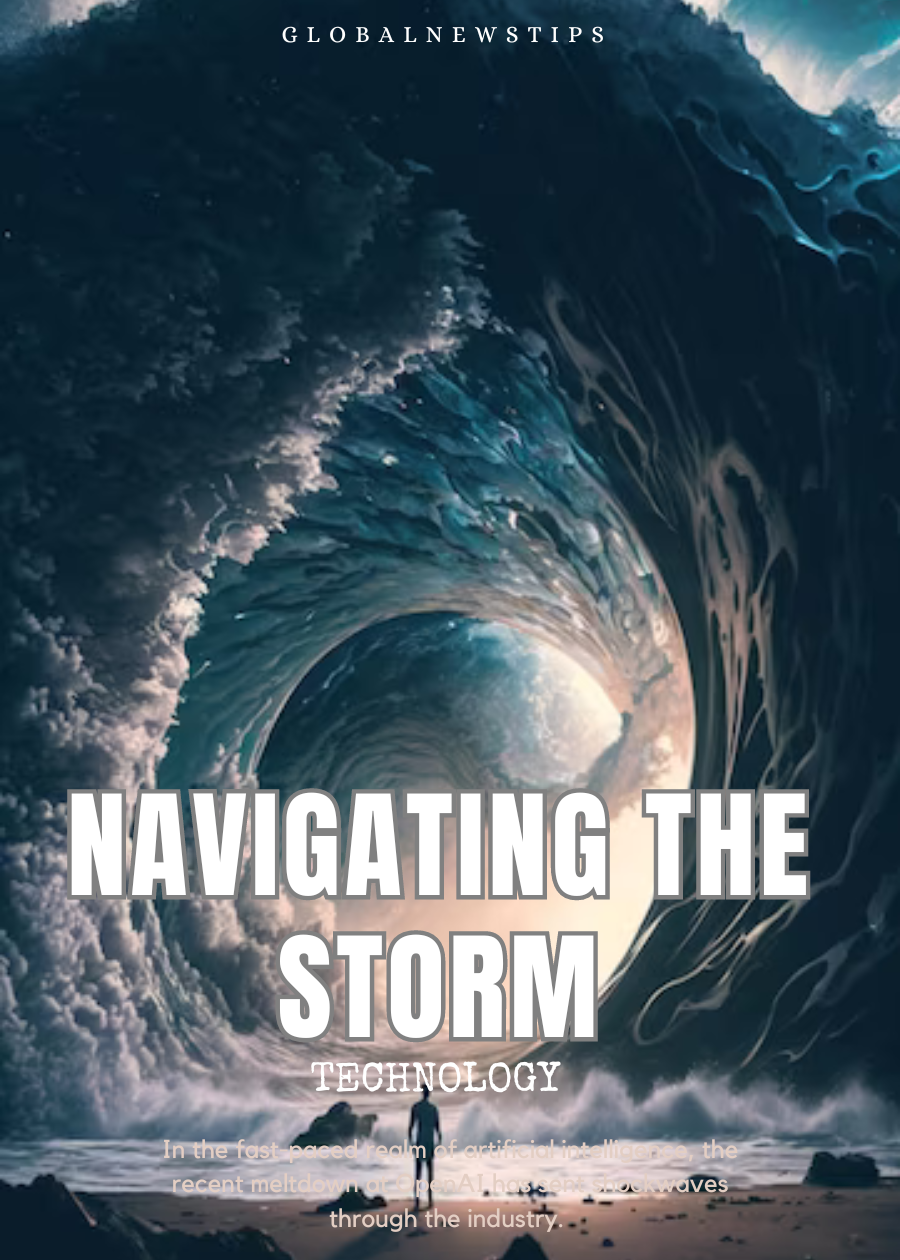In the fast-paced realm of artificial intelligence, the recent meltdown at OpenAI has sent shockwaves through the industry. Established with a mission to ensure that artificial general intelligence (AGI) benefits all of humanity, OpenAI's recent struggles have raised questions about the future of AI development. Let's delve into the events leading to the meltdown, its implications for the broader AI community, and the potential path forward.
I. Introduction
The OpenAI meltdown, a term now widely used to describe the recent internal challenges faced by the organization, has prompted a reevaluation of the dynamics within the AI community. As a stalwart in the field, OpenAI's journey from inception to its recent turmoil reflects the complex nature of navigating the development of advanced AI technologies.
II. Background of OpenAI
Founded in 2015, OpenAI set out with the ambitious goal of ensuring that artificial general intelligence benefits all of humanity. Over the years, the organization has made significant strides in AI research, contributing valuable insights and innovations to the global community.
III. The Meltdown Unveiled
The events leading to the OpenAI meltdown are multi-faceted, involving internal disagreements, shifts in leadership, and a divergence from the organization's founding principles. Key players within OpenAI found themselves at odds, leading to a crisis that unfolded over a series of tumultuous weeks.
IV. Implications for AI Development
The OpenAI incident has cast a shadow over the trustworthiness of AI technology. Stakeholders, including industry leaders, researchers, and the general public, are now questioning the reliability and ethical considerations associated with the development of AI.
V. Public Reaction
Social media platforms have been ablaze with discussions surrounding the OpenAI meltdown. Opinions vary, with some expressing concern about the potential setbacks for AI development, while others emphasize the importance of transparency and accountability.
VI. OpenAI's Response
OpenAI, in response to the crisis, has issued official statements addressing the internal challenges. The organization has outlined measures taken to rectify the situation, including changes in leadership and a commitment to revisiting and reinforcing its founding principles.
VII. Lessons Learned
The OpenAI incident serves as a lesson for the broader AI community. It highlights the importance of clear communication, adherence to ethical guidelines, and proactive measures to address internal conflicts to ensure the integrity of AI development.
VIII. Rebuilding Trust
OpenAI is actively engaged in rebuilding trust within the AI community and beyond. Transparency initiatives, collaborations with external ethical boards, and a renewed commitment to ethical AI development are steps taken to regain public confidence.
IX. Future of AI Ethics
The incident at OpenAI has sparked a broader conversation about the role of ethics in AI development. As the industry moves forward, there is an increasing emphasis on establishing and adhering to ethical standards that prioritize the well-being of humanity.
X. Collaborative Solutions
The OpenAI meltdown underscores the need for collaboration among AI organizations. Shared responsibility in advancing AI safely is crucial to preventing similar incidents and fostering an environment of mutual support and accountability.
XI. Beyond OpenAI
The repercussions of the OpenAI incident extend beyond the organization itself. The broader AI research community is urged to reflect on the incident and consider implementing industry-wide self-regulation to avoid similar pitfalls.
XII. The Human Element
While technological advancements are crucial, the OpenAI incident reminds us of the importance of incorporating ethical considerations and the human element in AI development. Striking a balance between innovation and ethical responsibility is paramount.
XIII. Looking Ahead
As we navigate the aftermath of the OpenAI meltdown, predictions for the future of AI vary. The incident is likely to prompt a reevaluation of ethical guidelines, with potential shifts in industry standards and a renewed focus on responsible AI development.
XIV. Expert Opinions
Prominent voices in the AI community have weighed in on the OpenAI incident, offering diverse perspectives on its impact and the necessary steps for moving forward. Their insights provide valuable context for understanding the nuances of the situation.
XV. Conclusion
In conclusion, the OpenAI meltdown has prompted a critical examination of the future of artificial intelligence. The incident serves as a reminder of the delicate balance required in advancing AI technology responsibly. As OpenAI works towards regaining trust and the AI community collectively learns from this experience, the road ahead promises both challenges and opportunities for the future of AI.
Frequently Asked Questions
Q: Can OpenAI fully recover from the meltdown?
- A: OpenAI is actively taking measures to rebuild trust and address internal challenges. The extent of recovery will depend on the effectiveness of these efforts.
Q: How does the OpenAI incident impact the broader AI industry?
- A: The incident has prompted discussions about ethical considerations, transparency, and collaboration within the entire AI research and development community.
Q: What steps is OpenAI taking to prevent similar incidents in the future?
- A: OpenAI has outlined initiatives for increased transparency, collaboration with external ethical boards, and a renewed commitment to ethical AI development.
Q: How are AI experts reacting to the OpenAI meltdown?
- A: AI experts have provided diverse perspectives, emphasizing








